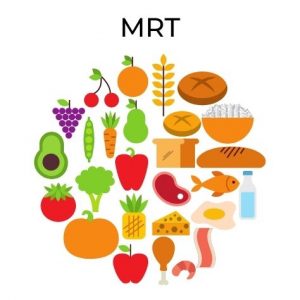MTHFR
$150
The test is available for shipping.
Please contact us at 561-570-6292 to arrange for the test to be shipped to you.
Methylenetetrahydrofolate reductase (MTHFR) is an enzyme that breaks down the amino acid homocysteine. The MTHFR gene that codes for this enzyme have the potential to mutate, which can either interfere with the enzyme’s ability to function normally or completely inactivate it.
People have two MTHFR genes, inheriting one from each of their parents. Mutations can affect one (heterozygous) or both (homozygous) of these genes.
There are two common types, or variants, of MTHFR mutations: C677T and A1298C.
These gene mutations are relatively common. In fact, in the United States, around 25% of people of Hispanic descent and 10–15% of people of Caucasian descent have two copies of C677T.
The mutations can lead to high levels of homocysteine in the blood, which may contribute to several health conditions, including:
- birth anomalies
- glaucoma
- certain mental health conditions
- certain types of cancer
Mutations in the MTHFR gene can affect the body’s ability to process amino acids — namely, homocysteine — which can lead to some adverse health outcomes.
Conditions that researchers have associated with MTHFR gene mutations include:
- homocysteinemia, which is the term for abnormally high levels of homocysteine in the blood or urine
- ataxia, which is a neurological condition that affects coordination
- peripheral neuropathy, which is a neurological condition that damages the nerves
- microcephaly is a condition present at birth in which the head is smaller than usual
- scoliosis, which refers to an abnormal curvature of the spine
- anemia, which means that there is a lack of healthy red blood cells in the body
- cardiovascular diseases, such as blood clots, stroke, and heart attack
- mental health conditions, such as depression
- behavior disorders, such as attention deficit hyperactivity disorder
Symptoms vary among individuals and depend on the type of mutation they have. People usually do not know that they have an MTHFR mutation unless they experience severe symptoms or undergo genetic testing.
Having one or two MTHFR mutations can slightly increase the levels of homocysteine present in the blood. This condition is called homocysteinemia.
Homocysteine is an amino acid that the body produces by breaking down dietary proteins. Having high levels of homocysteine can damage blood vessels and lead to blood clots. People who have high homocysteine levels tend to have low levels of vitamin B12.
Complications associated with having homocysteinemia due to MTHFR mutations include:
- abnormal blood clotting
- developmental delays
- seizures
- microcephaly
- blood clots
- poor coordination
- numbness or tingling in the hands and feet
(MedicalNewsToday)
Only logged in customers who have purchased this product may leave a review.















Reviews
There are no reviews yet.